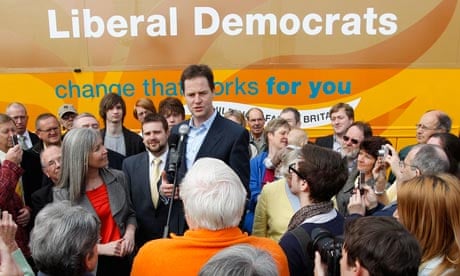In a few weeks I will address my first TUC annual meeting as general secretary. But if I do so again in 2014 I risk committing a criminal offence. This is because the cost of the congress will take us over the limited ration of dissent the government plans to allow in the 12 months before the 2015 election. This shocking proposal is contained in the transparency of lobbying, non-party campaigning and trade union administration bill, published as the Commons shut for the summer break, and with debate starting the day after MPs return.
It is an open secret around Westminster that the proposals in this bill are a highly partisan attack on trade union relations with the Labour party. But as leaders of charities, churches and faith groups return from their holidays, they are starting to realise it could redefine activities they have always regarded as being far above party politics as election campaigning – and that if they fail to comply with the spending limits, they will be committing a criminal offence.
How will this gag work? At present the law restricts the spending of non-party groups on election campaigning. But the proposed law goes from providing reasonable rules to keep big money out of politics into a chilling attack on free speech.
Even informal local groups will be caught up in the new rules. Concerned about fracking in your village? Worried about proposals to close a hospital or build a road? Be very careful, you only have a limited ration of dissent in each constituency, and if you get overdrawn or even lose some receipts then you could face a police investigation. Are you a community group that organises a series of hustings but chooses to exclude extremist party candidates? Sorry, you are now considered to be election campaigners.
The bill, then, redefines what counts as electioneering. At present only materials and activities obviously targeted at shifting votes are capped. But anything that might change the mind of a voter will count as election campaigning in future. If you are critical of a government policy in the year before an election, that will count as election campaigning. If you are active against racism then you could be campaigning against far-right parties. Staff time will be included, so the wages of anyone who works on writing a critique of a policy or sends it to the media will count.
But while much more will count as campaign spending, the limit on what third parties can spend in the year before the election is cut by more than half to a UK limit of £389,000.
Our congress will not just take the TUC over the third-party limit, it would also criminalise all our affiliated trade unions. This is because when two or more organisations co-operate their spending is all added together and then counts against each of their individual limits.
We would not be able to organise the national demonstration for jobs and fair wages that the TUC is planning next year if it falls 12 months before the election as, again, the joint costs of everyone participating will easily exceed the limit. Our anti-austerity message has never been party-political, but there can be no doubt that we disagree with the economic strategy of the current government. Such dissent will be criminalised.
It is hard to know whether everyone in government intends this bill to be so draconian. I certainly do not believe that the Lib Dems could knowingly have signed up to such illiberal proposals.
This bill was originally announced as a reaction to press allegations of cash for lobbying. But its lobbying register has united transparency campaigners and lobbyists against it, and looks like an excuse to introduce these limits, an element which people are only now beginning to understand. While it may force campaign groups like the Taxpayers' Alliance to be more open about its funding, that is a small benefit to be weighed against proposals that have nothing to do with cleaning up elections. Political parties' spending limits, however, will not be changed.
Our democracy is too important to be closed down for everyone other than political parties for a year before an election. The government should withdraw part two of this bill. And if it thinks there is a problem that needs a legislative solution then it should at least make the effort to consult with others and build a cross-party, cross-civil society consensus. That would be the best way to guarantee freedom of speech while stopping those with the biggest wallets buying elections.
